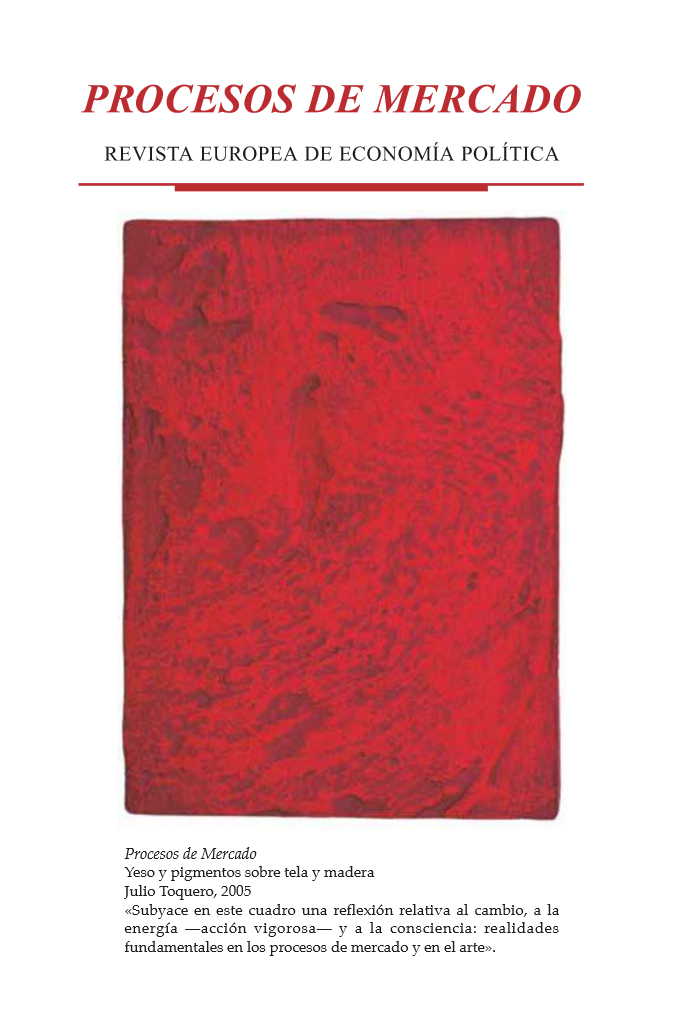THE CULTURAL WAR IN ECONOMIC SCIENCE
DOI:
https://doi.org/10.52195/pm.v21i2.953Abstract
The cultural war in economic science is a conflict that revolves around the fundamental principles of liberty, free markets, and the role of the state. Economic science, primarily advanced by the Austrian School, reveals that human society, when left free from state coercion, spontaneously organizes itself into a prosperous, voluntary order. The Austrian School’s theory challenges various pseudoscientific schools that defend the state’s necessity, such as positivism, neoclassical economics, Keynesianism, and Marxism. These schools of thought, though differing in their specifics, share a common agenda: justifying coercive state intervention in the economy. The war for economic freedom requires a comprehensive intellectual strategy, one that dismantles the pseudoscientific foundations of statism and promotes the libertarian ideals encapsulated in anarcho-capitalism. The paper argues that only through the full implementation of a free market system can humanity unlock its potential for unprecedented prosperity and social harmony, moving away from the inefficiencies and violence inherent in state intervention.
Downloads
References
Bastiat, M. Frederic. 2007. That Which Is Seen and That Which Is Not Seen: The Unintended Consequences of Government Spending. West Valley City, Utah: Waking Lion Press.
— 2009. Obras escogidas. Madrid: Unión Editorial.
De La Boétie, Étienne. 2008. The Politics of Obedience: The Discourse of Voluntary Servitude. Auburn, Alabama: Ludwig von Mises Institute.
Böhm-Bawerk, Eugen von. 1890. “The Exploitation Theory.” Book 6 of Capital and Interest: A Critical History of Economical Theory. London: Macmillan and Co.
— 1949. Karl Marx and the Close of His System. New York: Augustus M. Kelley.
Hansen, Lars Peter. 2019. “Purely Evidence-Based Policy Does Not Exist.” Chicago Booth Review (February 11).
Hayek, Friedrich A. 1955. The Counter-Revolution of Science. New York: The Free Press.
— 1988. The Fatal Conceit: The Errors of Socialism. Chicago: University of Chicago Press.
— 2008a. Hayek on Hayek: An Autobiographical Dialogue. Indianapolis: Liberty Fund.
— 2008b. “The Pretense of Knowledge.” In A Free-Market Monetary System. Auburn, Alabama: Ludwig von Mises Institute.
Huerta de Soto, Jesús. 2008. The Austrian School: Market Order and Entrepreneurial Creativity. Cheltenham, UK and Northampton, MA: Edward Elgar.
— 2010. Socialism, Economic Calculation, and Entrepreneurship. Cheltenham, UK and Northampton, MA: Edward Elgar.
— 2023. Statism and the Economy: The Deadliest Virus. London and New York: Routledge.
Kirzner, Israel. 1995. “The Perils of Regulation: A Market Process Approach.” In Discovery and the Capitalist Process. Chicago: University of Chicago Press.
Milei, Javier. 2023. “Capitalism, Socialism, and the Neoclassical Trap.” In The Emergence of a Tradition: Essays in Honor of Jesús Huerta de Soto, Volume II. Edited by D. Howden and P. Bagus. Cham: Palgrave Macmillan. DOI: https://doi.org/10.1007/978-3-031-17418-6_19
— 2024. Capitalismo, socialismo, y la trampa neoclásica. Madrid: Unión Editorial.
Mises, Ludwig von. 1990. Economic Calculation in the Socialist Commonwealth. Auburn, Alabama: Ludwig von Mises Institute.
— 2010. Planned Chaos: An Excerpt from “Socialism: An Economic and Sociological Analysis” (1951). Auburn Alabama: Ludwig von Mises Institute.
— 2019. El socialismo: análisis económico y sociológico. 8th ed. Madrid: Unión Editorial.
Oppenheimer, Franz. 1926. The State: Its History and Development Viewed Sociologically. New York: Vanguard Press.
Popper, Karl. 1966 (1945). The Open Society and Its Enemies. Princeton, N.J.: Princeton University Press.
Rallo, Juan Ramón. 2022. Anti-Marx: Crítica a la economía política marxista. Deusto: Bilbao.
Romer, Paul. 2016. “The Trouble with Macroeconomics.” Stern School of Business. New York University. (September 14).
Rothbard, Murray N. 2009. Anatomy of the State. Auburn, Alabama: Ludwig von Mises Institute.
Stigler, George. 1975. The Citizen and the State. Chicago: University of Chicago Press.


